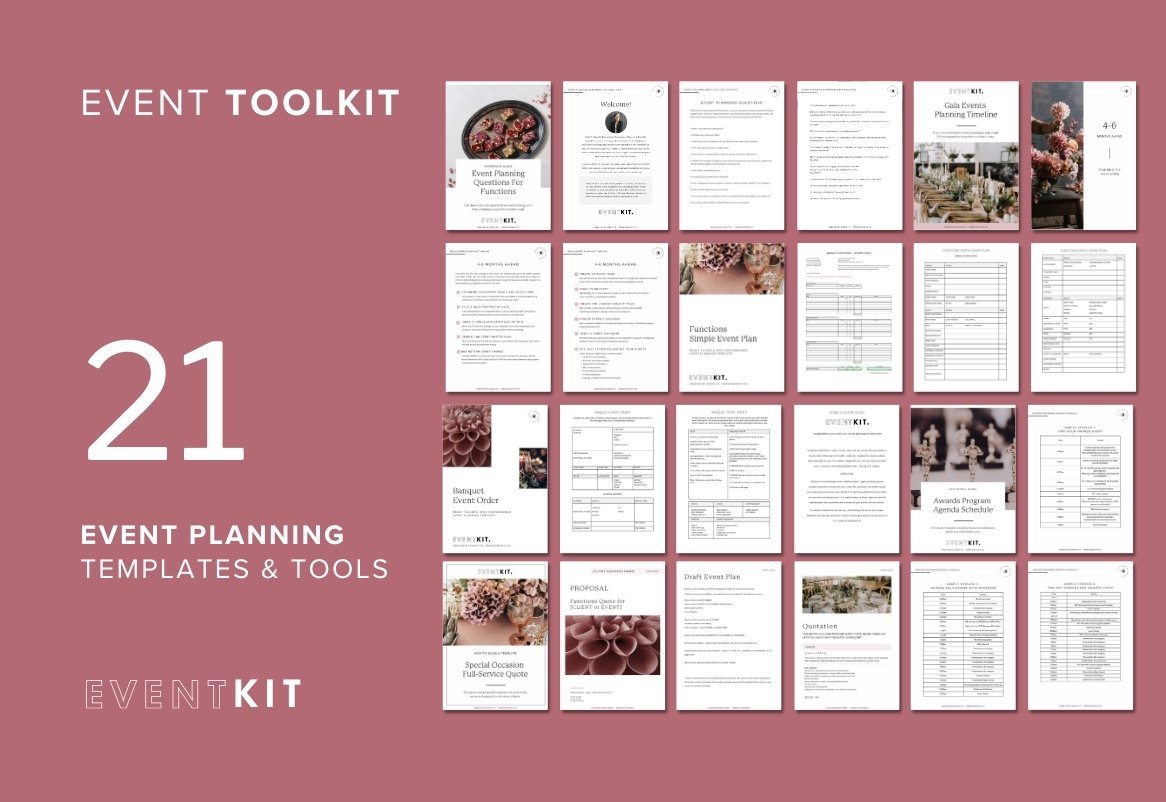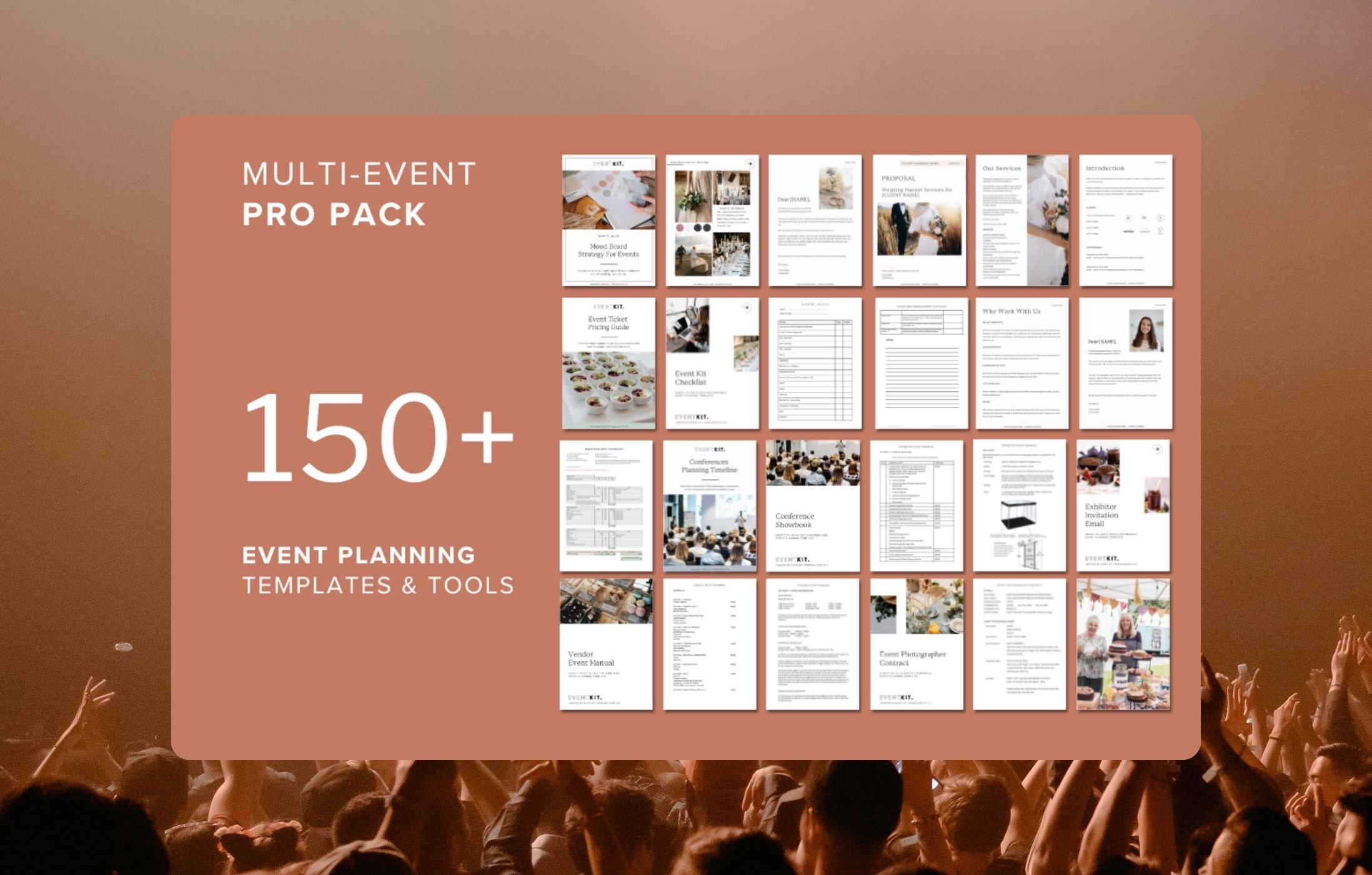How to Develop an Event Strategy
Creating an event isn’t just about checking off tasks on a to-do list. It’s about crafting an experience that resonates with your audience, meets your objectives, and runs smoothly from start to finish. And the secret ingredient to making all that happen? You guessed it—strategy.
Pro Tip: An effective event strategy is the key to better events, with less stress.
Have you ever felt overwhelmed by the endless details involved in planning an event?
From coordinating with vendors to managing budgets and timelines, it’s easy to feel like you’re juggling a thousand tasks at once.
That’s where a solid event strategy comes into play. As Antoine de Saint-Exupéry wisely said in The Little Prince, "A goal without a plan is just a wish." Though he wasn't talking about event production, his words are spot-on for our world!
Creating an event isn’t just about checking off tasks on a to-do list. It’s about crafting an experience that resonates with your audience, meets your objectives, and runs smoothly from start to finish. And the secret ingredient to making all that happen? You guessed it—strategy.
What is an Event Strategy?
An event strategy is your high-level plan for bringing your event to life. It captures your goals, objectives, and overall ambition for the event. Think of it as the essential 'why' behind your event, paired with a top-level 'how'.
You can devise an event strategy in two main ways.
First, you can create a linear flow from concept to wrap-up, highlighting key stages and outcomes. Alternatively, you can start at the event itself and work backward.
Both methods are popular and have their pros and cons, but either way, you'll end up with a coherent plan that will deliver a successful event.
Why is Event Strategy Important?
An event strategy provides the big picture of what, why, when, and how.
It’s a high-level document that you can refer back to as you break down each step and follow templates to execute your event. Here’s why it’s important:
Clear Goals: Identifies event goals, helping you set priorities to deliver a smooth event.
Higher ROI: Informs your event management plan with data and insights, enabling smart decisions about your budget and audience.
Measurable Success: Provides a framework with measurable deliverables and performance indicators, so you can judge the event’s success.
Without an event strategy, you're essentially flying blind, with no foresight or measurable outcomes.
How to Develop an Event Strategy
When putting together an event strategy, here are some key points to remember:
Smart KPIs
Each aspect of your event—marketing, budgeting, advertising, etc.—should be measured with key performance indicators (KPIs) that require specific, measurable, achievable, relevant, and time-bound (SMART) deliverables.
Automation
Wherever possible, automate tasks to streamline event production. Use electronic signups linked to event management software. Connect your emails to the same software and tag vendors for easy invoice categorisation. Include criteria in the signup process to build guest profiles for seating arrangements. Schedule email updates and marketing through automation.
Data Analysis
Organise and link data to your event management software from the outset. Capture insights around every aspect of your event—attendees, sales, signups, spending, etc. Use these insights as progress reports and to inform future event planning.
Flexibility
Build in room for your strategy to adapt to both foreseeable and unforeseeable problems. Being agile can save your event from potential pitfalls.
Collaboration
Teamwork makes the dream work! Listen to stakeholders, partners, and team members, even those not directly involved in planning. Sponsors and other collaborators may offer valuable insights that can enhance your event.
Research and Preparation
The strategy and planning stage is more about research and preparation than actual doing. Find the right goods, services, and people to bring in at the right budget. Pay attention to every detail, from the number of attendees and event format (in-person, virtual, hybrid) to logistics, caterers, vendors, and health and safety considerations.
Wrap Up
Developing an event strategy is not just a step in the planning process; it's the foundation of a successful event.
By setting clear goals, automating processes, analysing data, remaining flexible, and fostering collaboration, you’ll create an event that not only meets expectations but exceeds them. So, roll up your sleeves, dive into the details, and watch your event come to life in the best possible way!
Featured Event Toolkits
Start your next event with 90% of the work already done.
Time is money, and you starting from from scratch for every new project wastes lots of it. Get started faster, customise with ease, and plan your event with templates that practically pay for themselves. Shop Event Kit Templates
Related Content
Popular Posts

Hey, I’m Rachella!
Welcome to our blog. If you’ve come to find ideas and inspiration about event planning and entrepreneurship, and everything in between—you’re in the right place. Enjoy!
Shop 150+ Event Planning Tools
Better events, less stress. Pre-made event templates for seamless and easy event planning. Shop Templates














Want to ensure your trade show is a success? The Trade Shows Kit has you covered! With 20 ready-to-use planning templates and tools, this toolkit simplifies and streamlines every aspect of your industry showcase. Feel confident and prepared, every time.
Made for new event planners and busy event professionals. Price in USD.
See full description